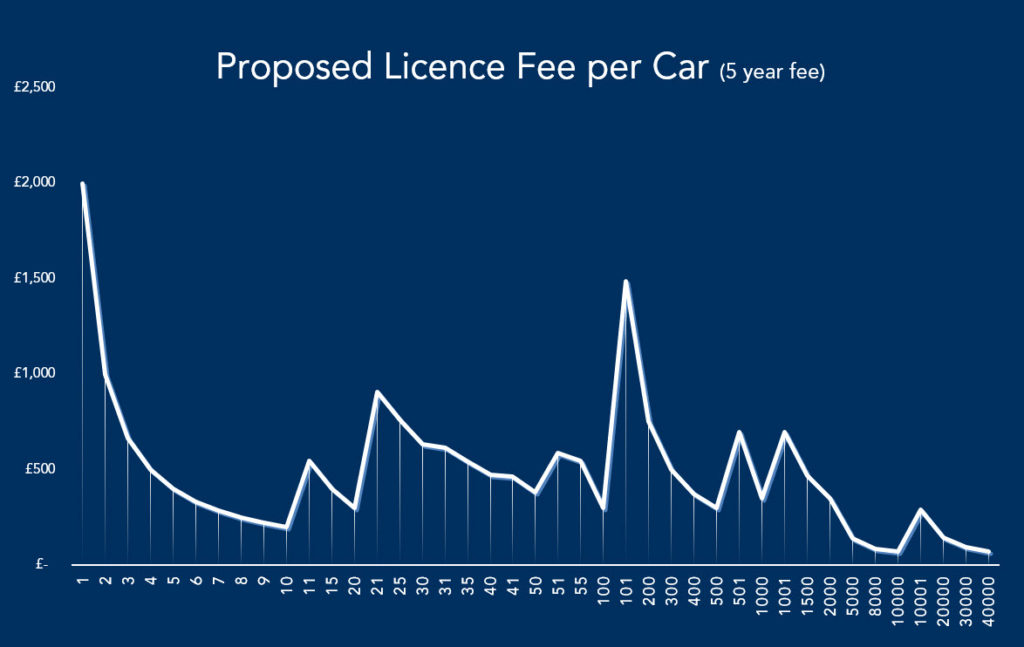Since TfL released their proposals to dramatically increase private hire operator licence fees, one question has been raging, “What exactly are the extra funds needed for?” The regulator stated that the increases are required to cover the increased cost of compliance.
According to the projections that TfL have released, annual running costs appear to have jumped significantly from £4 million to £26 million. And from their actions, it’s as if the spike has taken them by complete surprise. How this is possible remains a mystery? The Licensed Private Hire Car Association (LPHCA) have issued a Freedom Of Information Act Request, but no detailed analysis of what their escalated costs will be has been supplied.
TFL also recently increased Penalty Charge Notices from £130 to £160 and from £65 to £80 if the charge is paid early. In the past 5 years this fee has risen by 12%. In addition to that, the cost of PHV licences has gone up to £140 from £100 on Oct 2nd. So you would think that the regulator’s coffers would be overbrimming.
TfL’s cost projections
The total projected cost of licensing, compliance and enforcement of the taxi and private hire trades stated by the regulator over the next 5 years is £209 million. This seems particularly odd considering that, at the previous review 5 years ago, they decided not to increase fees.
The main escalation in activity appears to be in enforcement. Following Mayor Khan’s election, a big point was made about the need to get more “feet on the street.” TfL have since employed an additional 250 enforcement officers. This is likely to be the main reason that the estimated cost of enforcement over the next 5 years will be £30 million, up from £4 million. Presumably, with the new officers detecting more infringements, there will greater prosecution costs. However, if you simply divide the extra £26 million in annual costs by 250, the additional cost per head of each officer works out at an astronomical £104,000.
Amongst other complaints against the regulator, the Licensed Private Hire Car Association LPHCA deem the costs to be unlawful. They argue that operator licensing fees are legally only supposed to reflect the cost of licensing fees and nothing else. The operators’ trade body is adamant that a proportion of the fees will be directed to other activities by TfL to make up budget shortfalls elsewhere.
TfL’s Erratic Pricing Structure
In our previous blog “TfL’s Potty Proposals for Operator Licensing Fees” we analysed some of the issues caused by the erratic nature of the original pricing structure plan. The cost of compliance activity for the largest private hire fleet operator is said to currently be £499,435. TfL claim that, at the moment, this amount is being subsidised by smaller operators. For that reason, fees have been reduced by 33.6% for drivers with 0 to 2 vehicles and by 29.65% for operators with 3 to 10 vehicles.
Below is an updated graph that illustrates the spike in costs per vehicle as soon as an operator grows their fleet beyond a certain number. Operators are more than likely investigating the possibility of splitting their fleets in order to avoid the increased costs – and in turn completely undermining the point of the exercise.

Conclusion
Many in the industry are laying the blame for the proposed new costs at Uber’s door. The app based firm certainly instigated an escalation in private hire driver numbers and a greater demand on enforcement resource to ensure existing licensing requirements are being abided by.
We voiced the opinion at the LPHCA Roadshow that if a technology platform is the cause then perhaps it could also be the solution. There are many efficiencies that TfL could benefit from if it were to invest in simple technological solutions. For nearly two years, we have been suggesting that the regulator develops an insurance portal that we gave the working title Taxi Insurance Checker (TIC). This system would eradicate the need for compliance officers to search the streets for uninsured or inappropriately insured drivers. Instead, they would receive an email notification immediately when a taxi or private hire vehicle is removed from the database. The number of compliance officers required could be greatly reduced. Despite positive meetings with TfL, as it stands we’re still waiting for them to act upon the proposals.

